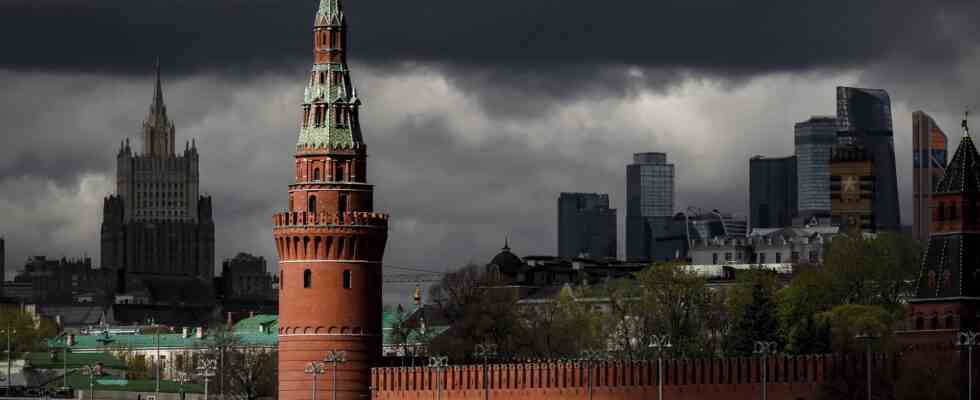Status: 07/14/2022 00:58
The people in Moscow are of course aware that there is a war in Ukraine. But their attitude to it varies – between fear, rejection and the conviction that Russia must now pull it through.
The park near the Kitai Gorod metro station is perfect for taking a short break from life in the noisy big city. From here it goes in one direction to a popular nightlife area with many busy bars and cafés and in the other direction to Red Square.
The beautiful weather and the summery atmosphere reinforce the impression that the fighting raging in Ukraine and the resulting consequences in the everyday lives of people in Russia hardly seem to play a role.
Fear? Only before a military escalation
In fact, her life has hardly changed at all in the past few months, says 45-year-old Marina from Moscow.
Of course, she noticed that prices were rising, that she could no longer travel to Europe. “Of course I’m against war. I don’t want people’s houses to be destroyed and people killed there. But most people don’t really care as long as it doesn’t affect them personally,” she says. People were worried – “but we’re not so worried that we won’t be able to go to the café.”
Marina says she is not afraid of further sanctions either. The only thing that frightens her is the thought of a further military escalation – with fatal consequences for everyone. “But what can I do about it? Say: Hey, put away the red button?”
In a recent survey by the independent polling institute Levada Center, half of those questioned said they were afraid of the possible use of nuclear weapons by Russia. The Kremlin asserts that it does not want to take this step. On Russian state television, however, this “option” is repeatedly hotly debated, particularly in the political talk shows.
The greatest tragedy
Wera and her two sons, both in their early 20s, take photos in front of a monument. They come from Volgograd and are visiting the capital. They like Moscow.
“Very green,” says Wera. Then her facial expression becomes serious. “I feel sorry for those who are having a hard time. We talk a lot about it, I have relatives in Ukraine. We are in contact.” Some of them moved to Poland – the others are in Kharkiv. “Right now,” says Wera.
Vera’s son Tolya, who has been listening the whole time, leans forward. “We’re really very against what’s happening. And that, in my opinion, is the greatest tragedy that could have happened in recent times.”
“You can’t scare us”
Alexander, a slim man in his 40s, says that nobody needed a war – neither Ukraine nor Russia. But now Russia will not stop.
“We have goals and tasks set by our government. We must not let up. Once we have decided something, we will see it through. Ukraine cannot hold out without the support of the West. So there will be negotiations and agreements anyway – just not in favor of Ukraine.”
This makes Alexander one of the 75 percent of Russians who say in surveys that they support the so-called “special military operation” completely or at least to a large extent. According to opinion research institutes, this approval has decreased only slightly in recent months.
In any case, Alexander is convinced that the Western sanctions will not change the attitude of his compatriots: “There are no flights, there are no spare parts, things have been closed here and there – we can handle all of that. The more stones they throw at us away, the stronger we become. You can’t scare us with that pressure, those sanctions. And it certainly won’t stop us.”
At the same time, Alexander hopes that Russians and Ukrainians will soon be able to live together peacefully again. He sees responsibility for this with the government – in Kyiv.
Between fear and conviction – the mood in Moscow
Martha Wilczynski, ARD Moscow, July 13, 2022 9:20 p.m

